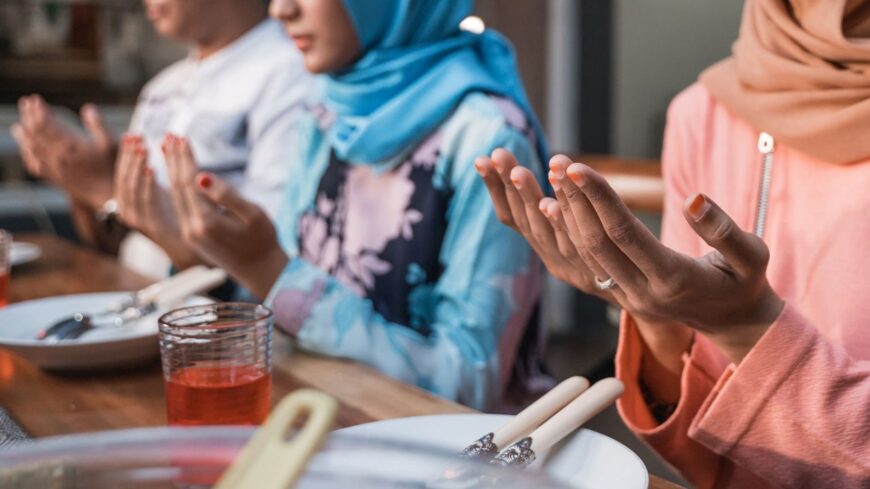Ramadan is a month-long period of fasting and spiritual reflection observed by Muslims worldwide. This holy month is considered one of the Five Pillars of Islam and is a time for increased devotion, prayer, and good deeds.
In this article, we will explore the significance of Ramadan, its health benefits according to Islamic medicine, its positive impact on nonprofit mental health organizations, and how to prepare for Ramadan. We will also examine the traditions of Ramadan, including Suhoor and Iftar, and the importance of giving back during this holy month.
What Does Ramadan Mean for Islam?

It is a time for Muslims to focus on their relationship with Allah and deepen their spiritual connection. It is a time for self-reflection, forgiveness, and charity. Fasting during Ramadan is an act of worship that helps Muslims become more conscious of their actions and their impact on others. It is also a time to practice self-discipline and self-control, as Muslims are expected to abstain from food, drink, and other physical needs during daylight hours.
Also, it’s significant because it is believed to be the month the Quran was first revealed to the Prophet Muhammad. Muslims are encouraged to read and reflect on the Quran this month, and many mosques hold nightly prayers to recite the Quran throughout the month.
Health Benefits of Fasting in Ramadan According to Islamic Medicine
Islamic medicine recognizes the health benefits of fasting, and many Muslims report feeling healthier and more energized during Ramadan. Fasting has been shown to improve insulin sensitivity, lower blood pressure, and improve cholesterol levels. It is also believed to have anti-inflammatory effects and to help the body detoxify.
Islamic medicine emphasizes the importance of eating a balanced diet during Ramadan to ensure the body receives the nutrients it needs. Muslims are encouraged to break their fast with dates and water, which provide energy and hydration, before eating a meal with protein, whole grains, fruits, and vegetables.
How Ramadan Can Benefit Nonprofit Mental Health Organizations?

Ramadan can positively impact mental health, and many nonprofit mental health organizations have recognized the potential benefits of this holy month. Fasting has been shown to improve mental clarity and focus, and studies have found that it can improve mood and reduce symptoms of depression and anxiety. In addition, the spiritual focus of Ramadan can provide a sense of purpose and meaning, which can benefit those struggling with mental health issues.
Nonprofit mental health organizations can use Ramadan to engage with Muslim communities and raise awareness about mental health issues. They can also provide support and resources for Muslims struggling with mental health issues during Ramadan, such as those experiencing loneliness or isolation due to the pandemic.
When is Ramadan Held?
Ramadan is based on the Islamic lunar calendar and begins on the ninth month of the calendar. The exact date of Ramadan varies from year to year, depending on the sighting of the new moon. In 2024, Ramadan will begin on March 22st and end on April 21st.
How to Prepare Correctly for Ramadan
Preparing for Ramadan involves both physical and spiritual preparation. Muslims are encouraged to prepare for Ramadan several weeks in advance by gradually adjusting their sleep and eating schedules. They are also encouraged to increase their acts of worship, such as prayer and reading the Quran, in the weeks leading up to Ramadan.
During Ramadan 2024, Muslims are expected to abstain from food, drink, and other physical needs from dawn until sunset. It is essential to stay hydrated during this time, so Muslims are encouraged to drink plenty of water and avoid sugary or caffeinated drinks. Eating a balanced diet at night is also essential to ensure the body receives the nutrients it needs.
Known Spiritual Benefits of Ramadan

People know it is a time for increased devotion and spiritual reflection. Muslims are encouraged to focus on their relationship with Allah and deepen their understanding of their faith. Fasting during Ramadan is believed to purify the soul and increase one’s sense of humility and gratitude.
It is also a time for increased charity and good deeds. Muslims are encouraged to give generously to those in need and to perform acts of kindness and compassion. This spirit of giving and generosity is a central aspect of Ramadan and helps strengthen the bonds of community and brotherhood/sisterhood among Muslims worldwide.
The Traditions of Ramadan: Suhoor and Iftar
There are two marked traditions by two main meals: Suhoor and Iftar. Suhoor is a meal eaten before dawn, essential for providing energy and hydration for the fast ahead. Iftar is the meal eaten after sunset, and it is a time for breaking the fast and sharing a meal with family and friends.
Both Suhoor and Iftar typically include a variety of foods, such as dates, fruits, and traditional dishes from different parts of the world. These meals are an essential aspect of Ramadan and allow Muslims to come together and share in the holy month’s blessings.
The Importance of Giving Back During Ramadan

These days are the time for increased charity and good deeds. Muslims are encouraged to give generously to those in need and to perform acts of kindness and compassion. This spirit of giving and generosity is a central aspect of Ramadan and helps strengthen the bonds of community and brotherhood/sisterhood among Muslims worldwide.
There are many ways to give back during Ramadan, such as donating to a charitable organization, volunteering at a local food bank, or simply reaching out to a neighbor in need. These acts of kindness and compassion are beneficial for those in need and can help purify the soul and increase one’s sense of gratitude and humility.
Conclusion
This is a time for increased devotion, spiritual reflection, and good deeds. It is a time for Muslims to deepen their relationship with Allah and strengthen their community bonds. According to Islamic medicine, fasting during Ramadan has many health benefits and can also positively impact mental health. As we prepare for Ramadan, let us strive to focus on our spiritual growth, give generously to those in need, and embrace the blessings of this holy month.




